Tepezza Lawsuit
Tepezza is a medication designed to treat a rare condition called thyroid eye disease. It’s manufactured by Horizon Therapeutics, a company founded specifically to develop treatments for rare conditions. A side effect of taking Tepezza is hearing loss, which is supposed to be temporary, with hearing returning to normal after the treatment was complete. However, many who took Tepezza found that their hearing loss and tinnitus were permanent. Horizon Therapeutics is now facing lawsuits from plaintiffs claiming that the company failed to adequately warn patients of the risk and doctors of the need to monitor their patients’ hearing.

FREE CASE REVIEW
Home > Defective Drug Attorneys > Tepezza Lawsuit
What Is Tepezza?
Tepezza is the brand name of teprotumumab, a medication that treats thyroid eye disease. It’s an infusion that is injected directly into the patient’s vein. The infusions are done at a pace of one every three weeks for a total of eight infusions over a period of twenty-four weeks total, which is about a period of six months. Each infusion period would last between 60 and 90 minutes.
Tepezza’s Approval by the FDA
The FDA approved Tepezza to treat thyroid eye disease on January 21, 2020.
The Benefits of Tepezza
It was found that patients treated with Tepezza experienced a reduction in their symptoms at a rate of 83%, compared to only 10% to 20 % of those who received a placebo.
Tepezza’s Manufacturer, Horizon Therapeutics
Tepezza is manufactured by the Ireland-based company Horizon Therapeutics, which was founded in 2008 by CEO Tim Walbert. Walbert was diagnosed with an autoimmune disorder while he was in college. After seeing upwards of 100 different physicians regarding his condition, he was eventually diagnosed with a rare disease. He founded Horizon in order to help treat others who have rare conditions. The company began small but has now grown to the point where it has more than 2,000 employees across the globe.
What Is Tepezza Made of?
Each dose of Tepezza includes the following:
- Teprotumumab-trbw (500 mg)
- L-histidine (7.45 mg)
- L-histidine hydrochloride monohydrate (31.8 mg)
- Polysorbate 20 (1 mg)
- Trehalose dihydrate (946 mg)
What Is Thyroid Eye Disease?
Thyroid eye disease, or TED, is an eye condition that can result in damage to the tissues in the eyes. TED is an autoimmune disease, which means that it’s caused by the immune system, which is used to protect the body against diseases, infections, and other harmful conditions, attacks itself instead. Thyroid eye disease is similar to Graves disease and can be related. In some cases, TED and Graves disease are considered interchangeable names for the same condition.
Thyroid Eye Disease vs. Graves Disease
Graves disease is an autoimmune disease that can impact the skin, eyes, and thyroid. The thyroid is a small gland that produces hormones used in the body’s metabolism, which controls how the body processes food and turns it into energy for you to use. Graves disease can result in hyperthyroidism, in which the thyroid produces too much of the thyroid hormone, as well as hypothyroidism, in which it doesn’t produce enough. By contrast, thyroid eye disease can occur even in people whose thyroid hormone levels are completely normal. The two diseases are similar and may be related in some cases.
Symptoms of Thyroid Eye Disease (TED)
The symptoms of TED can include:
- Proptosis, or bulging eyes
- Dry eyes
- Red eyes
- Watery eyes
- A gritty feeling in the eyes
- Irritated eyes
- Diplopia, or double vision
- Trouble fully closing the eyes, which can cause an ulcer on the cornea
- Painful eye movements
- Pain located behind the eyes
- Blurry vision
- Light sensitivity
Risk Factors of Thyroid Eye Disease
You may be more at risk for developing TED if you are female, you have family members with thyroid eye disease, or your blood has low levels of the mineral selenium. On average, most people who develop TED are 43 years old, but it’s possible to develop it either younger or older than that.
How Does Tepezza Work to Treat Thyroid Eye Disease?
Tepezza treats thyroid eye disease by blocking the cause of the swelling in the eyes. This helps to reduce the swelling, bulging, and redness in the eyes caused by TED.
Tepezza Interactions
Tepezza could have negative effects on those who are pregnant or who have one of the following conditions:
- Diabetes
- Inflammatory bowel disease (IBD), including Crohn’s disease and ulcerative colitis
Side Effects of Tepezza
The most common side effects of Tepezza include:
- Muscle cramps
- Muscle spasms
- Hair loss
- Nausea
- Diarrhea
- High blood sugar
- Feeling tired
- Menstruation changes
- Dry skin
- Changes in taste
- Hearing trouble
Severe Side Effects of Tepezza
If you experience any of the following severe side effects, you should see a doctor:
- Fast heartbeat
- High blood pressure
- Feeling hot
- Redness in the face
- Muscle pain
- Headache
- Difficulty breathing
$2+ BILLION IN RESULTS

What Are Tepezza’s Links to Hearing Loss?
Researchers have found that the usage of Tepezza to treat thyroid eye disease is linked to hearing loss. They conducted a study and found that 85% of those whose TED was treated with Tepezza experienced side effects as a result. It was reported that 10% of people would experience hearing loss, which was supposed to return once they stopped taking Tepezza. In the study, the researchers analyzed twenty-eight patients, thirteen of whom were complaining of hearing loss symptoms. That number made up 46% of the patients participating in the study.
While the hearing loss was supposed to be reversible following the cessation of treatment, that wasn’t necessarily the case. One patient experienced an improvement but their hearing wasn’t back to normal. Others experienced no improvement in their hearing at all. The researchers concluded that anyone taking Tepezza should have their hearing tested and that the links between Tepezza and hearing loss should be studied further.
Other studies have linked Tepezza to tinnitus, which is characterized by a ringing in the ears. In this study, tinnitus occurred following three months’ worth of Tepezza treatments and was later followed by bilateral hearing loss.

Types of Hearing Loss Linked to Tepezza
Tepezza has been linked to the following types of hearing conditions:
- Sensorineural hearing loss (SNHL)
- Tinnitus
- Increased sensitivity to noise-induced trauma
- Sound distortion
- Bilateral hearing loss
- Autophony
Sensorineural Hearing Loss (SNHL)
Sensorineural hearing loss is a type of hearing loss caused by damage to the inner ear or issues with the neural pathways between the inner ear and the brain.
Causes of SNHL
SNHL can be caused by the following:
- Illnesses
- Aging
- A blow to the head
- Listening to loud noises
- Proximity to explosions
- Taking medication that affects hearing
Symptoms of SNHL
The symptoms of SNHL can include:
- Dizziness
- Ringing in the ears
- Muffled hearing
- A stuffed feeling in the ears
- Steady or sudden hearing loss
- Difficulty understanding what people say
Tinnitus
Tinnitus is a ringing in the ears that isn’t coming from an external source. This means that you’re the only one who can hear it. 15 to 20% of people, especially older adults, experience tinnitus. It’s usually caused by a specific condition, including hearing loss for any reason.
Causes of Tinnitus
Tinnitus can be caused by the following conditions:
- Hearing loss
- Head injury
- Neck injury
- Ear canal blockage
- Ear infection
- Certain medications
- Inner ear muscle spasms
- Changes to the ear bones
- Meniere’s disease
- Eustachian tube dysfunction
- Temporomandibular joint disorders (TMJ)
- Blood vessel disorders
- Acoustic neuroma
- Tumors in the head or neck
Symptoms of Tinnitus
The symptoms of tinnitus typically involve phantom noises that only you can hear, such as any of the following:
- Ringing
- Buzzing
- Clicking
- Hissing
- Roaring
- Humming
- Rhythmic pulsing
- Whooshing
- Squealing
Bilateral Hearing Loss
Hearing loss is described as being either unilateral or bilateral, no matter what causes the hearing issue. Unilateral means that the hearing loss is occurring in only one ear while bilateral indicates that the hearing loss is occurring in both ears.
Autophony
Autophony is a condition in which your own voice sounds different to you. Typically, it’ll sound lower-pitched or louder than it normally does.
Tepezza Hearing Loss Warnings
Horizon was aware of the risk of hearing loss and did acknowledge that risk. The company’s report stated that 10% of people taking Tepezza might experience hearing loss. They also said the risk was worth the treatment for thyroid eye disease. The company claimed that any adverse side effects experienced by those participating in their clinical trials were manageable.
However, many feel that this warning wasn’t sufficient because the hearing loss sustained from taking Tepezza wasn’t manageable as Horizon had said. Many also said that they weren’t aware of the risks of hearing loss prior to agreeing to take Tepezza to treat thyroid eye disease. Doctors weren’t aware of the risks or the need to monitor patients for hearing loss during and following treatment like the researchers who linked Tepezza to hearing loss in the first place. Plus, Horizon didn’t warn about permanent hearing loss as a possibility.
Tepezza Lawsuits
Beginning in the summer of 2022, patients who had suffered from permanent hearing loss or tinnitus as a result of having been treated with Tepezza started to file lawsuits against the company that manufactured the medication, Horizon Therapeutics. The plaintiffs claim that Horizon didn’t adequately warn either patients or doctors of the risk of permanent tinnitus or hearing loss as a result of taking Tepezza infusions.
Two lawsuits have been filed thus far in 2022, one in August and another in September. Both were filed in the Northern Illinois district. This is where Horizon has its United States-based headquarters. Because these lawsuits were only filed earlier this year, there has not yet been a settlement. More lawsuits are expected to follow, however.
Should I Consider a Tepezza Lawsuit?
If you have been diagnosed with temporary or permanent hearing loss or tinnitus as a result of undergoing Tepezza treatments for thyroid eye disease, then you may have a case against Horizon. Plaintiffs with eligible claims may seek compensation for lost work, medical costs, pain and suffering, and more. For a free consultation, contact Farah & Farah today. You won’t have to pay a dime unless your case is successful.














FREE CASE REVIEW
